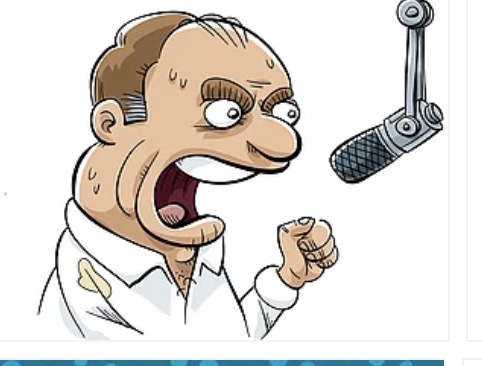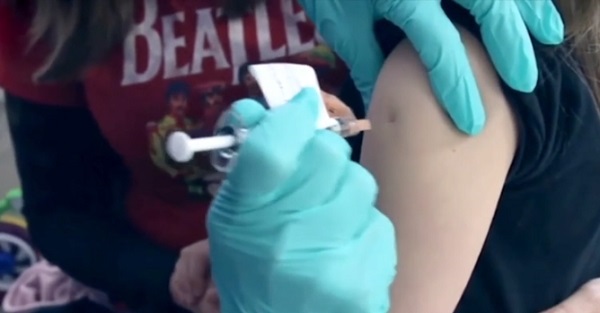Opinion
EDDIE EDITOR’S EDDIE HEADLINE FOR JUNE 7

Environment
Canada’s river water quality strong overall although some localized issues persist

From the Fraser Institute
By Annika Segelhorst and Elmira Aliakbari
Canada’s rivers are vital to our environment and economy. Clean freshwater is essential to support recreation, agriculture and industry, an to sustain suitable habitat for wildlife. Conversely, degraded freshwater can make it harder to maintain safe drinking water and can harm aquatic life. So, how healthy are Canada’s rivers today?
To answer that question, Environment Canada uses an index of water quality to assess freshwater quality at monitoring stations across the country. In total, scores are available for 165 monitoring stations, jointly maintained by Environment Canada and provincial authorities, from 17 in Newfoundland and Labrador, to 8 in Saskatchewan and 20 in British Columbia.
This index works like a report card for rivers, converting water test results into scores from 0 to 100. Scientists sample river water three or more times per year at fixed locations, testing indicators such as oxygen levels, nutrients and chemical levels. These measurements are then compared against national and provincial guidelines that determine the ability of a waterway to support aquatic life.
Scores are calculated based on three factors: how many guidelines are exceeded, how often they are exceeded, and by how much they are exceeded. A score of 95-100 is “excellent,” 80-94 is “good,” 65-79 is “fair,” 45-64 is “marginal” and a score below 45 is “poor.” The most recent scores are based on data from 2021 to 2023.
Among 165 river monitoring sites across the country, the average score was 76.7. Sites along four major rivers earned a perfect score: the Northeast Magaree River (Nova Scotia), the Restigouche River (New Brunswick), the South Saskatchewan River (Saskatchewan) and the Bow River (Alberta). The Bayonne River, a tributary of the St. Lawrence River near Berthierville, Quebec, scored the lowest (33.0).
Overall, between 2021 and 2023, 83.0 per cent of monitoring sites across the country recorded fair to excellent water quality. This is a strong positive signal that most of Canada’s rivers are in generally healthy environmental condition.
A total of 13.3 per cent of stations were deemed to be marginal, that is, they received a score of 45-64 on the index. Only 3.6 per cent of monitoring sites fell into the poor category, meaning that severe degradation was limited to only a few sites (6 of 165).
Monitoring sites along waterways with relatively less development in the river’s headwaters and those with lower population density tended to earn higher scores than sites with developed land uses. However, among the 11 river monitoring sites that rated “excellent,” 8 were situated in areas facing a combination of pressures from nearby human activities that can influence water quality. This indicates the resilience of Canada’s river ecosystems, even in areas facing a combination of multiple stressors from urban runoff, agriculture, and industrial activities where waterways would otherwise be expected to be the most polluted.
Poor or marginal water quality was relatively more common in monitoring sites located along the St. Lawrence River and its major tributaries and near the Great Lakes compared to other regions. Among all sites in the marginal or poor category, 50 per cent were in this area. The Great Lakes-St. Lawrence region is one of the most population-dense and extensively developed parts of Canada, supporting a mix of urban, agricultural, and industrial land uses. These pressures can introduce harmful chemical contaminants and alter nutrient balances in waterways, impairing ecosystem health.
In general, monitoring sites categorized as marginal or poor tended to be located near intensive agriculture and industrial activities. However, it’s important to reiterate that only 28 stations representing 17.0 per cent of all monitoring stations were deemed to be marginal or poor.
Provincial results vary, as shown in the figure below. Water quality scores in Newfoundland and Labrador, Prince Edward Island, New Brunswick, Saskatchewan and Alberta were, on average, 80 points or higher during the period from 2021 to 2023, indicating that water quality rarely departed from natural or desirable levels.
Rivers sites in Nova Scotia, Ontario, Manitoba and B.C. each had average scores between 74 and 78 points, suggesting occasional departures from natural or desirable levels.
Finally, Quebec’s average river water quality score was 64.5 during the 2021 to 2023 period. This score indicates that water quality departed from ideal conditions more frequently in Quebec than in other provinces, especially compared to provinces like Alberta, Saskatchewan and P.E.I. where no sites rated below “fair.”
Overall, these results highlight Canada’s success in maintaining a generally high quality of water in our rivers. Most waterways are in good shape, though some regions—especially near the Great Lakes and along the St. Lawrence River Valley—continue to face pressures from the combined effects of population growth and intensive land use.
Agriculture
End Supply Management—For the Sake of Canadian Consumers

This is a special preview article from the:
U.S. President Donald Trump’s trade policy is often chaotic and punitive. But on one point, he is right: Canada’s agricultural supply management system has to go. Not because it is unfair to the United States, though it clearly is, but because it punishes Canadians. Supply management is a government-enforced price-fixing scheme that limits consumer choice, inflates grocery bills, wastes food, and shields a small, politically powerful group of producers from competition—at the direct expense of millions of households.
And yet Ottawa continues to support this socialist shakedown. Last week, Prime Minister Mark Carney told reporters supply management was “not on the table” in negotiations for a renewed United States-Mexico-Canada Trade Agreement, despite U.S. negotiators citing it as a roadblock to a new deal.
Supply management relies on a web of production quotas, fixed farmgate prices, strict import limits, and punitive tariffs that can approach 300 percent. Bureaucrats decide how much milk, chicken, eggs, and poultry Canadians farmers produce and which farmers can produce how much. When officials misjudge demand—as they recently did with chicken and eggs—farmers are legally barred from responding. The result is predictable: shortages, soaring prices, and frustrated consumers staring at emptier shelves and higher bills.
This is not a theoretical problem. Canada’s most recent chicken production cycle, ending in May 2025, produced one of the worst supply shortfalls in decades. Demand rose unexpectedly, but quotas froze supply in place. Canadian farmers could not increase production. Instead, consumers paid more for scarce domestic poultry while last-minute imports filled the gap at premium prices. Eggs followed a similar pattern, with shortages triggering a convoluted “allocation” system that opened the door to massive foreign imports rather than empowering Canadian farmers to respond.
Over a century of global experience has shown that central economic planning fails. Governments are simply not good at “matching” supply with demand. There is no reason to believe Ottawa’s attempts to manage a handful of food categories should fare any better. And yet supply management persists, even as its costs mount.
Those costs fall squarely on consumers. According to a Fraser Institute estimate, supply management adds roughly $375 a year to the average Canadian household’s grocery bill. Because lower-income families spend a much higher proportion of their income on food, the burden falls most heavily on them.
The system also strangles consumer choice. European countries produce thousands of varieties of high-quality cheeses at prices far below what Canadians pay for largely industrial domestic products. But our import quotas are tiny, and anything above them is hit with tariffs exceeding 245 percent. As a result, imported cheeses can cost $60 per kilogram or more in Canadian grocery stores. In Switzerland, one of the world’s most eye-poppingly expensive countries, where a thimble-sized coffee will set you back $9, premium cheeses are barely half the price you’ll find at Loblaw or Safeway.
Canada’s supply-managed farmers defend their monopoly by insisting it provides a “fair return” for famers, guarantees Canadians have access to “homegrown food” and assures the “right amount of food is produced to meet Canadian needs.” Is there a shred of evidence Canadians are being denied the “right amount” of bread, tuna, asparagus or applesauce? Of course not; the market readily supplies all these and many thousands of other non-supply-managed foods.
Like all price-fixing systems, Canada’s supply management provides only the illusion of stability and security. We’ve seen above what happens when production falls short. But perversely, if a farmer manages to get more milk out of his cows than his quota, there’s no reward: the excess must be
dumped. Last year alone, enough milk was discarded to feed 4.2 million people.
Over time, supply management has become less about farming and more about quota ownership. Artificial scarcity has turned quotas into highly valuable assets, locking out young farmers and rewarding incumbents.
Why does such a dysfunctional system persist? The answer is politics. Supply management is of outsized importance in Quebec, where producers hold a disproportionate share of quotas and are numerous enough to swing election results in key ridings. Federal parties of all stripes have learned the cost of crossing this lobby. That political cowardice now collides with reality. The USMCA is heading toward mandatory renegotiation, and supply management is squarely in Washington’s sights. Canada depends on tariff-free access to the U.S. market for hundreds of billions of dollars in exports. Trading away a deeply-flawed system to secure that access would make economic sense.
Instead, Ottawa has doubled down. Not just with Carney’s remarks last week but with Bill C-202, which makes it illegal for Canadian ministers to reduce tariffs or expand quotas on supply-managed goods in future trade talks. Formally signalling that Canada’s negotiating position is hostage to a tiny domestic lobby group is reckless, and weakens Canada’s hand before talks even begin.
Food prices continue to rise faster than inflation. Forecasts suggest the average family will spend $1,000 more on groceries next year alone. Supply management is not the only cause, but it remains a major one. Ending it would lower prices, expand choice, reduce waste, and reward entrepreneurial farmers willing to compete.
If Donald Trump can succeed in forcing supply management onto the negotiating table, he will be doing Canadian consumers—and Canadian agriculture—a favour our own political class has long refused to deliver.
The original, full-length version of this article was recently published in C2C Journal. Gwyn Morgan is a retired business leader who was a director of five global corporations.
-

 Health2 days ago
Health2 days agoFDA warns ‘breast binder’ manufacturers to stop marketing to gender-confused girls
-

 Uncategorized20 hours ago
Uncategorized20 hours agoMortgaging Canada’s energy future — the hidden costs of the Carney-Smith pipeline deal
-

 Agriculture2 days ago
Agriculture2 days agoSupply Management Is Making Your Christmas Dinner More Expensive
-

 International2 days ago
International2 days ago2025: The Year The Narrative Changed
-

 Business1 day ago
Business1 day agoThere’s No Bias at CBC News, You Say? Well, OK…
-

 Health2 days ago
Health2 days agoAll 12 Vaccinated vs. Unvaccinated Studies Found the Same Thing: Unvaccinated Children Are Far Healthier
-

 Daily Caller2 days ago
Daily Caller2 days agoTrump Reportedly Escalates Pressure On Venezuela With Another Oil Tanker Seizure
-

 International20 hours ago
International20 hours agoAustralian PM booed at Bondi vigil as crowd screams “shame!”










